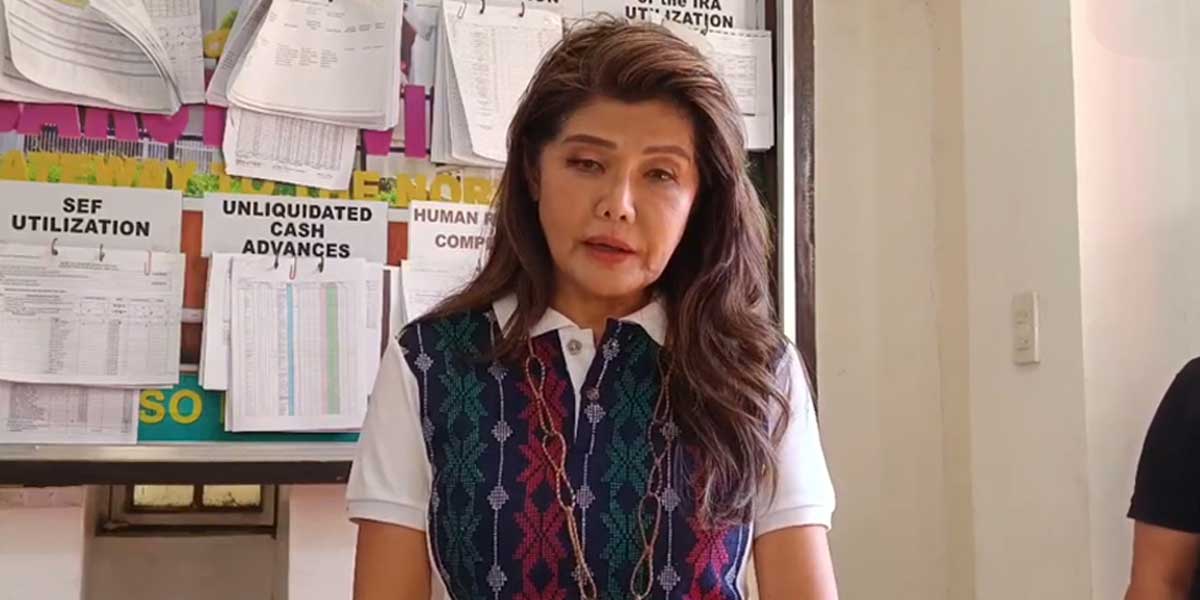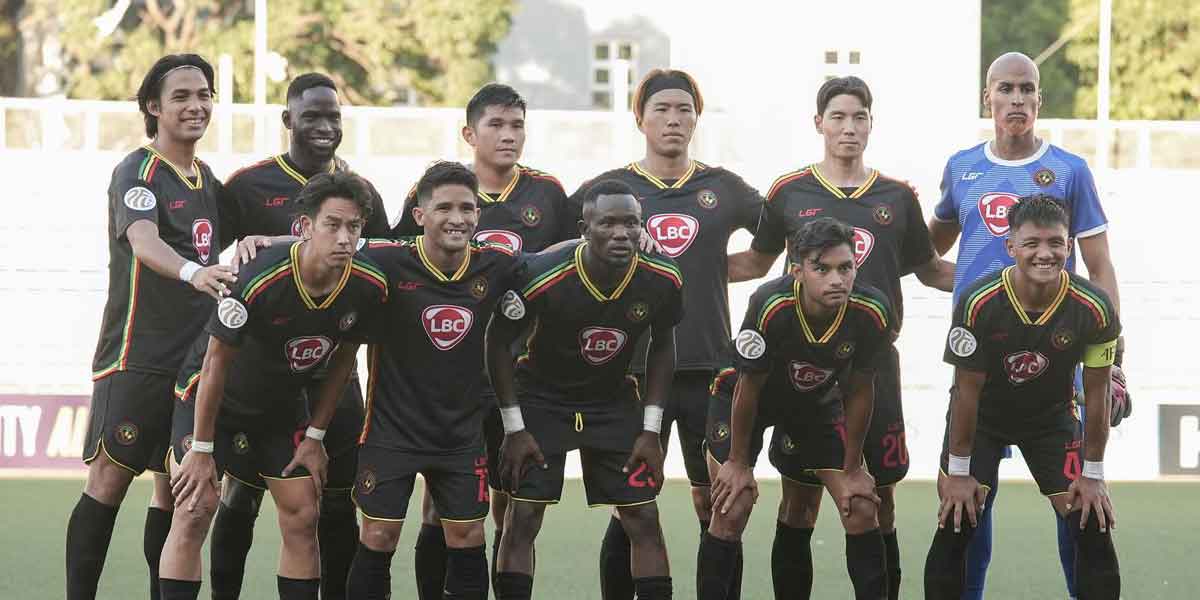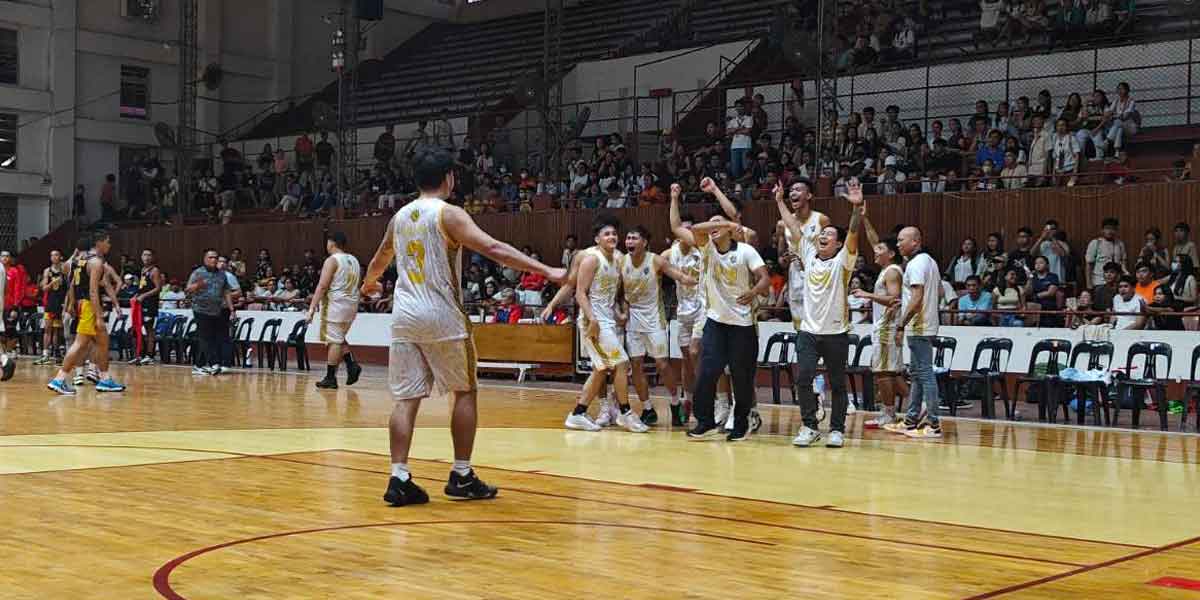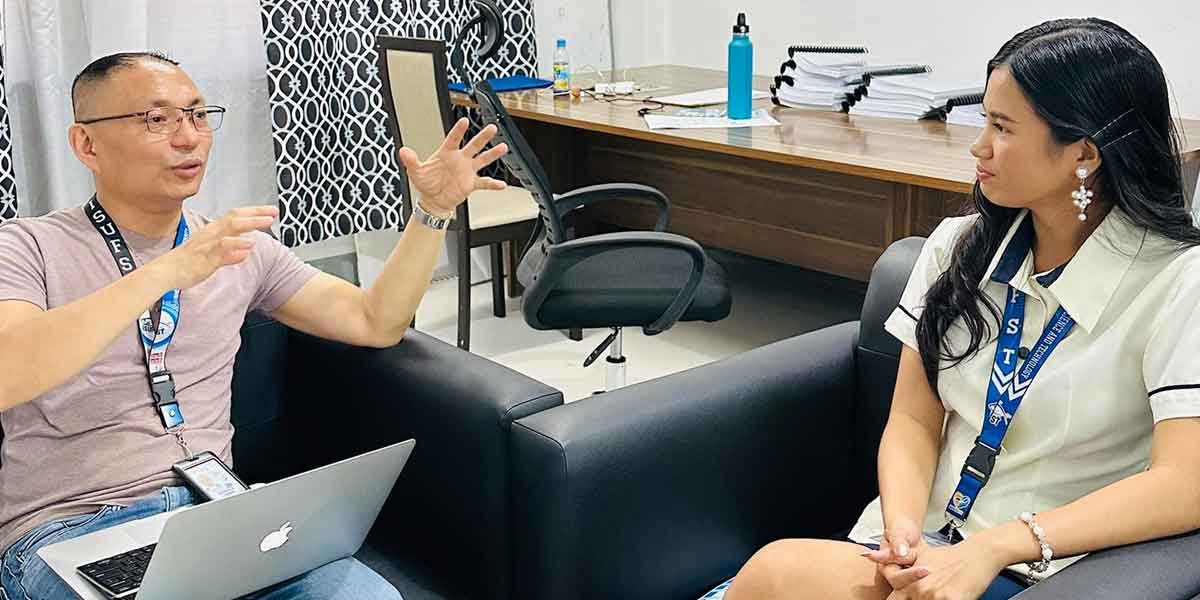
KARLA
Karla, not her real name, rode on the jeepney on a Wednesday afternoon in early 2019, pre-pandemic time. She was busy reading her book for her class when she suddenly felt a hand touching the lower portion of her right breast. Blood rushed to her head in fear and in anger. She mustered up the courage to face the perpetrator and confront him, but to her disappointment, the man just denied the accusation.
After speaking words in her defense which only landed on deaf, in denial ears, she went down the vehicle but with a warning to the perpetrator never to do that to anyone ever again. As the jeepney left, she stood on the street, shocked, feeling defeated, traumatized.
Back then, there was no law to protect Karla and penalize the perpetrator. But her experience is,
dare we say, not uncommon.
A 2016 Social Weather Stations (SWS) survey conducted in barangays Bagong Silangan and Payatas, Quezon City, showed that “3 of 5 women”—or 60 percent of the respondents—experienced sexual harassment in public spaces at one point in their lives.
Fifty-eight percent said it happened to them in the streets, 10 percent in transport terminals, 8 percent on school grounds and 8 percent inside stores and malls. From catcalling and wolf-whistling, the sexual harassment escalates to worst forms, with the survey revealing that 34 percent of the women experienced what happened to Karla, being groped in public or encountering men who exposed their genitals.
These acts of sexual harassment, no matter the sex and gender identity of the victim or perpetrator,
are what the Safe Spaces Act (RA 11313 or SSA) is trying to prevent and address.
At the Safe Spaces, Kasali Tayo Online Events organized by the Philippine Commission on Women (PCW) in line with the 2021 18-Day Campaign to End Violence Against Women (VAW), Atty. Twyla Rubin, Office-in-Charge of the Center for Gender Equality & Women’s Human Rights, explained why the law is vital, given the dire effects of gender-based sexual harassment (GBSH).
“Ang sexual harassment ay isang uri ng gender-based violence. Ito ay paglabag sa karapatang pantao. Ito ay isang porma ng diskriminasyon. Ito ay nakakaapekto sa pag-enjoy nang iyong karapatan. Dahil kapag ikaw ay nakaranas ng karahasan, naaapektuhan ang trabaho mo, naapektuhan iyong physical at mental health mo, naaapektuhan iyong economic opportunities mo,” said Atty. Rubin.
In discussing sexual harassment, she explained that this comes in the form of unwanted sexual conduct, like sexual advances, request for sexual favor, but also other verbal, physical, and non-verbal acts. She clarified that regardless of the motive of the perpetrator, an act or comment can constitute sexual harassment.
The SSA also expanded the coverage to public spaces, utility vehicles, and online spaces and it also detailed duties of agencies and even the private sector to help secure safe spaces.
“Lahat ng private companies, required to conduct training on Safe Spaces. Lahat sila required to adopt policies that will respond to complaints of GBSH. Pagdating naman sa gobyerno, lahat kailangang i-review ang policies para ma-change at incorporate ang mga definitions under the Safe Spaces Act. And meron ding mga requirement na kailangan talagang agarang tumugon pag merong nangyayaring forms of harassment,” Atty. Twyla shared.
Karla is relieved that with this law, victims of GBSH can have a recourse.
“Ngayong may ganito nang batas, mas lalakas na ang loob ng mga biktima. May all spaces be safe so everyone can walk freely in the streets, ride in public utility vehicles, and roam around public spaces without the fear of being groped, catcalled, or touched in any unwanted manner,” Karla shared.
Col. Joy Tomboc, chief of the Philippine National Police Women and Children Protection Center’s Anti-VAWC Division, advised the public to report incidents of sexual harassment to the authorities.
“The WCPC personnel will assist the victims in the preparation of complaint affidavit and case folder.
Hindi na kailangang mag-hire pa ng lawyer and then magbayad ng mga acceptance fee kasi kung
pumunta kayo sa WCPC, ang aming investigator po will assist in preparing the documents,” said Col. Tomboc.
As to the need for evidence, Atty. Twyla shared: “”Hindi naman kailangan na may naka-witness dahil your own personal account is already an evidence para sa iyo sa nangyari na violence against you. Of course, mas maganda, mas madali kung mayroong naka-witness pero hindi ibig sabihin na kapag walang witness ay hindi tatanggapin ang iyong reklamo.”
But the sexual harassment transcends from the physical world to the online realm. The PCW has received inquiries from women involving various incidents of online gender-based sexual harassment, from incessant messaging for nude photos, video calling then showing of private parts, posting comments with sexual remarks, and many other acts of GBSH online.
Atty. Kristtia Amores of the National Bureau of Investigation’s Cybercrime Division underscored the similar gravity of GBSH in the physical and online realms.
“Kung anumang dealings natin online, kung anumang friendship or cooperation tayo in the virtual or digital world natin, kung anong epekto niyan, pareho rin riyan sa dealings natin sa physical world,” Atty. Amores enthused.
She gave practical advice as to dealing with a perpetrator online called BIRS.
“Block the person right away. Ignore mo ang mga sinasabi niya, huwag mo iinternalize… Report the account right away and preserve mo iyong accounts in case na gusto mong mag-kaso sa tao na iyon. Speak out. ‘Di mo kailangang solohin iyong nangyayari sa iyo; kailangang malaman ng mga tao sa paligid mo na may ganyan kang natatanggap na statement, kung iyan ba ay nakakabastos, nakakababa ng pagkatao, or any kind of sexual harassment.”
LIRA
Aside from including GBSH in the public and online spaces, the Safe Spaces Act also expanded the coverage of GBSH in the workplace and educational and training institutions. This is a welcome development for Lira, not her real name, who experienced sexual harassment in the workplace.
Sharing the story to PCW, Lira said that the perpetrator was consistently asking her to go out, but she always refused.
“There is this one guy doon na medyo mataas posisyon niya… Niyaya niya kasi ako sa labas… iyong one time, nagsubmit ako ng requirement, tapos niyaya niya ako lumabas tapos sabi ko, I’ve been telling him na hindi, na uncomfortable ako sa ganun, sabi niya, as friends lang. At one point, sinabi niya na, alam niya iyong address ko. Habang iniiscroll niya sa computer, nandun iyong mga addresses namin.”
She filed a complaint in their office and during the hearing, the perpetrator admitted to saying the remarks but argued that they were only “jokes”. After months of hearing, the office only meted him out with days of suspension, a penalty Lira deems as insufficient for the trauma she suffered. She ended up leaving a job that she loved because of what happened. With the Safe Spaces Act, she hopes that victims will be emboldened to report.
“They should really acknowledge na may nagawa sa kanila iyong tao kasi nasasabi nga nila na joke lang iyon pero kapag nararamdaman mo na naco-cross na iyong boundaries mo, na iba na siya, i-acknowledge natin na nangyayari sa atin and also, huwag tayo matakot to report to proper authorities sa kung paano natin mao-overcome itong situation. Huwag tayong matatakot na magreport, magreklamo, file a case,” she said.
However, reporting can be daunting for some, especially if they are afraid of losing their jobs. Civil Service Commission’s Chief of the Office of Legal Affairs, Atty. Maricar Mon-Cancino, highlighted the Committee on Decorum and Investigation (CODI)’s role in making sure that this will not be the case.
“Meron tayong provision for the CODI to ensure protection ng mga victims o complainants ng SH against retaliation pagdating sa conditions ng employment o benefits… Meron din provision na pwedeng makasuhan ang head of the agency ng neglect of duty if he or she fails to act sa complaints ng SH,” Atty Mon-Cancino said.
It is worth noting that under the Safe Spaces Act, anyone in the workplace can report against a superior, subordinate, or even co-employee.
Atty. Twyla elaborated on this saying that the law already dispensed of the requirement for a demand, request, or requirement of a sexual favor under the old law, because the element of authority, influence, or moral ascendancy is no longer necessary for GBSH to be committed.
“Hindi na kailangang may demand, hindi na kailangang mas mataas sa iyo iyong nang-harass sa iyo, pwedeng peer mo lang, at in-expand nito kung saan pwedeng mangyari, pwedeng sa public space, sa vehicles, pwede sa online spaces,” she enthused.
Atty. Benjo Santos Benavides, Labor Undersecretary for Labor Relations, Social Protection and Policy Support Cluster, discussed the comprehensive duties of employers under the Safe Spaces Act but stressed that employees who encourage the conduct of GBSH in the workplace can also be reprimanded.
“If instead of discouraging, employees encourage the conduct of GBSH in the workplace, they may be held liable; if instead of providing emotional support, the employee disregards co-workers, he/she may be administratively liable… Administrative liability may be in the form of warning, censure, or imposition of fine, or even transfer from one building to another or one department to another, demotion, or dismissal,” said Usec. Benavides.
GBSH in educational and training institutions is another evil that RA 11313 seeks to defeat. These incidents have made headlines in the past. In 2020, several girls came forward on social media with stories of being harassed by their teachers and under the hashtag #DoBetter, they encouraged institutions to strengthen protection measures for victims.
In 2021, a litany of allegations was also brought to light involving teachers of a high school in Manila and a science high school in Ilocos and just recently, the Department of Education made a statement about a viral video of a teacher allegedly insinuating potential child abuse.
Director Joyce Andaya of DepEd’s Bureau of Curriculum Development noted the need to incorporate discussions on gender sensitivity in the curriculum in an aim to prevent these incidents. She shared “DepEd’s commitment to incorporate principles of gender equality, gender equity, gender sensitivity, non-discrimination, and human rights in its delivery of basic education services.” Currently, DepEd is also strengthening the referral system for cases of GBSH.
Kath Zarsadias of the Technical Education and Skills Development Authority also shared their agency’s similar efforts to inject mechanisms against GBSH in their programs. She encouraged victims to come forward, regardless of their position.
“Dapat po talaga nire-report. Wala naman pong pinipili, whether you are a student, you are a trainee, you are a teacher, as long as naramdaman mo iyon, dapat mareport po iyon sa CODI, para ma-address siya,” she said.
But what if the students, teachers, or staff do not know a CODI exists in their institution?
Commission on Higher Education GAD consultant Ms. Cristina Gaerlan said “We have been reminding HEIs, sa orientation ninyo, doon sa mga pumapasok na first year, banggitin niyo na ang CODI, kahit na nagpahiram lang kayo ng kwarto sa committee.”
Across all the spaces, Atty. Twyla explained that all genders can be both victims and perpetrators. On explaining misogynistic and sexist remarks, Atty. Rubin said “these are remarks or slurs directed against women showing that you consider or treat women as objects, as inferior beings, as not your equal, or could also show that you hate women and you don’t consider or respect women’s rights. We have transphobic or homophobic remarks… that show there’s hatred or discrimination or degrading treatment against LGBTQIAs.
SHANE
Shane (not her real name), a rape survivor, is a living testament of why we should nip sexual harassment in the bud so it will not escalate to the worst types of sexual violence.
Shane was young in her organization when one of the officers of her group abused her while they were on a mission.
“Di ko inakala na ganun iyong gagawin niya. Siyempre dahil bago din ako, hindi ko alam iyong gagawin ko. Natakot ako na magsumbong lalo pa’t sinabi niya na hindi naman ako paniniwalaan ng mga kasama kung sakaling magsusumbong ako. Siyempre mas matagal siya, sino ba ako para paniwalaan ng mga kasama? Wala ding saksi, walang ebidensiya,” she said.
As if one incident is not traumatizing enough, she was raped again, this time, by a squad leader. “Habang nag-aadjust ako sa mga emotional breakdown na nangyayari sa akin, mararanasan ko pa iyong sexual abuses. so dun ko naisip na ang hirap maging babae sa lipunan na dominante ang mga lalake so kailangan nating magpakatatag bilang babae,” she said, in tears.
Despite the horrifying experience, she is a VAW survivor that does not let the incidents define her.
“Kailangan ko sigurong tanggapin lahat ng challenges, lahat ng hirap na pinagdaanan ko. Kasi lumilipas ang panahon, dahil hindi ko na mababago iyon eh. Pero iyong future, pwede ko pang baguhin, pwede ko pa ayusin,” she shared.
If sexual jokes, catcalling, wolf-whistling, and sexual harassment in general is not trivialized or normalized, it will not escalate to rape, sexual assault, or other types of gender-based violence.
The PCW hopes for a future free from sexual harassment and violence so that there will be no more Karlas, no more Liras, no more Shanes.
This year’s Campaign to End VAW has ended but the fight for a VAW-free Community must ring louder even beyond the 18 Days.



















